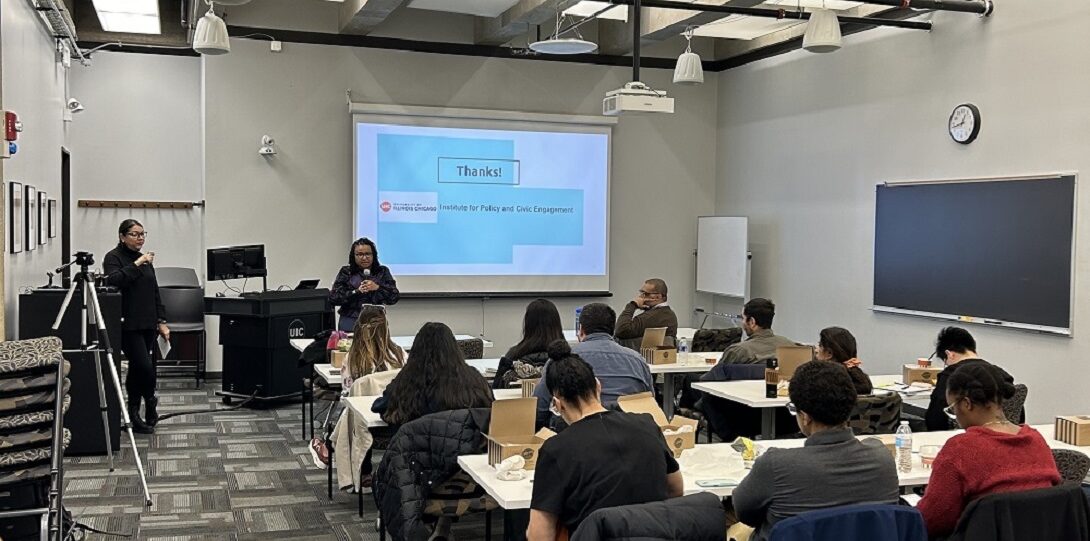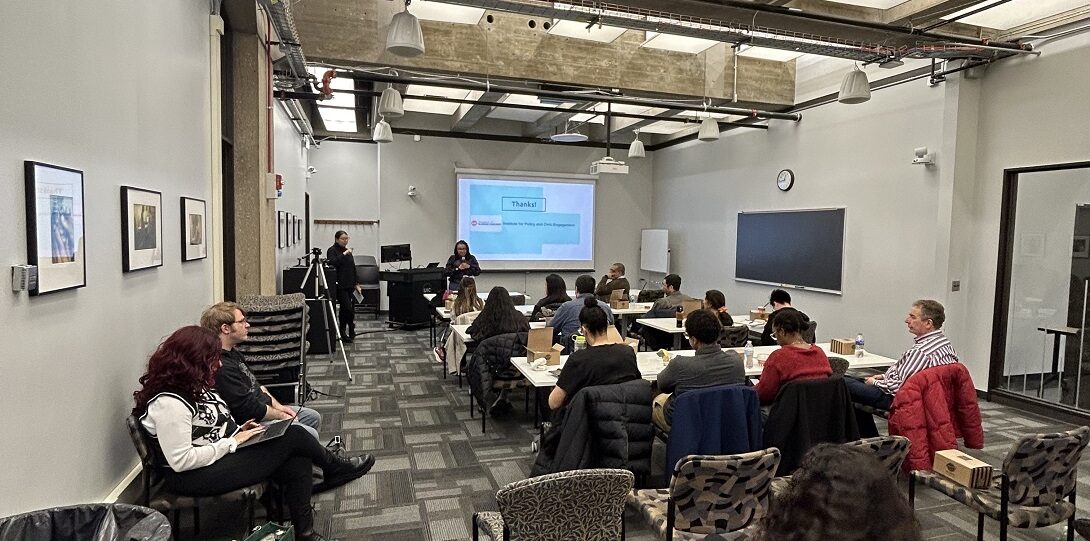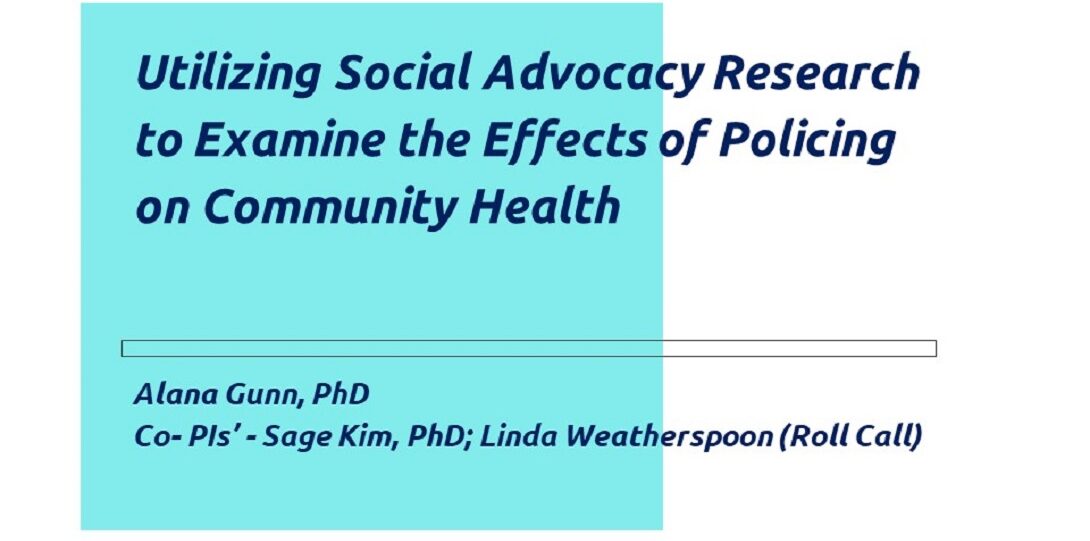“Utilizing Social Advocacy Research to Explore the Effects of Policing on Community Health” – A Civic Engagement Lunch Talk Follow-Up
On March 6th, 2024, Professor Alana Gunn, PhD, Criminology, Law and Justice, College of Liberal Arts and Sciences, presented at IPCE's Civic Engagement Lunch Talk series held on campus in Daley Hall. Her presentation was titled "Utilizing Social Advocacy Research to Explore the Effects of Policing on Community Health”.
Experiences of hyper-surveillance impact the health of under-served communities and exacerbate health disparities. In particular, exposure to neighborhood strains, such as fear of police encounters and arrests, contribute to health illnesses such as traumatic stress and anxiety.
Given the link between health and community-level surveillance, Dr Gunn and her Co-Principal Investigators engaged in a participatory research study to explore how communities make sense of their police encounters. They conducted a series of focus groups, using photovoice, with 20 justice-impacted individuals examining their views about their community, families, interactions with police and how this shapes their health. Findings reveal that communities experience tensions between needing protection while fearing police surveillance and threat. Secondly, participants felt stigmatization which further heightened anxiety. Additionally, social disorganization was seen as a major driver of neighborhood violence, as well as residents’ sense of fear and stress.
Further public health and criminological research can illuminate the complexities of living in highly surveilled communities and managing one’s health. Research shows arrests, persistent surveillance, even fears of involuntary police contacts, heighten risks of anxiety, depressive symptoms, as well as exposures to traumatic events. (Geller, 2014; Henning, 2022; Roberts et al 2011). Moreover, increased access to mental health services can support residents’ exposure to systematic stress and criminalization due to threats of hyper-policing and other community strains.
Through her research, Gunn asks, "How do communities experience policing efforts, and in what ways does it shape their health?" and "How can participatory research methods be utilized to engage community and build advocacy?". Gunn and her Co-PI's, Sage Kim, PhD; Linda Weatherspoon (Roll Call), recruited community participants and partnered with a CAB to determine themes from the community, such as social disorganization, disengagement, and trauma. These findings were disseminated through a Photovoice Exhibition in fall of 2023, which led to multiple community forums and radio appearances.
Follow the link below to watch the entire lunch talk. We thank Professor Gunn for her wonderful research that helps further our understanding of effective strategies and tools for civic engagement! View our events tab on our website to stay up to date on future Civic Engagement Lunch Talks.


